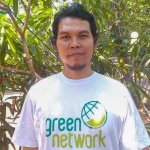Indonesia-UN Collaboration to Support Job Creation and Social Protection

Photo: Freepik.
Employment and social protection are crucial to support people’s welfare and wellbeing. However, limited employment opportunities have become a serious issue in many countries, including in Indonesia. The country’s social protection system also remains lacking and limited to certain groups. In this light, the Government of Indonesia and the United Nations launched a joint program to support job creation and social protection expansion.
Indonesia’s Major Problems
Unemployment has been a major problem in Indonesia for years. In recent years, the issue has intensified due to the increasing working-age population coupled with shrinking job opportunities. In fact, about many young people (15-24 years old) are categorized as NEET (Not in Employment, Education or Training), with the number reaching 9.89 million in 2023. Many of them are college graduates, including master’s graduates.
At the same time, limited social protection has exacerbated the situation. Various social protection programs in Indonesia, especially in the form of social assistance, tend to focus on aiding people who are categorized as poor, and leaving the middle-class group behind. Therefore, encouraging job creation and social protection expansion is crucial, especially amidst rising living costs and various other challenges.
Supporting Job Creation and Social Protection
In early June 2025, the Government of Indonesia collaborated with the United Nations to support job creation and social protection expansion after the COVID-19 pandemic. The programs have two focuses: (1) modern and adaptive social protection and skill development systems and (2) disability inclusion in social protection and employment across the life cycle.
With the support of the Joint SDGs Fund of 3.15 million USD (around 51 billion IDR) and several European countries, the two programs support the implementation of Indonesia’s roadmap related to the Global Accelerator on Jobs and Social Protection for Just Transition. The joint program will gather recommendations to reform social protection schemes in Indonesia, identify ways to expand social protection, identify new green and digital skills, expand economic opportunities for vulnerable groups, and improve skill development systems for sustainable lifelong learning.
“By building a modern and adaptive social protection system, and linking it to industry-based skills development, this initiative can improve employment opportunities and expand social protection, especially for the most vulnerable, including people with disabilities,” said Gita Sabharwal, UN Resident Representative in Indonesia.
Promoting Inclusive Policies
Ultimately, supporting job creation and social protection requires a shared commitment from all stakeholders—governments, the private sector, and civil society—and requires inclusive and equitable policies to ensure impactful change. Reforming social protection systems and creating jobs must go hand in hand, with a focus on sustainability, equal access, and readiness to face global challenges like digitalization, climate change, and environmental degradation. In this regard, cross-sector collaboration that favors vulnerable groups must be a priority.
Translator: Kresentia Madina
The original version of this article is published in Indonesian at Green Network Asia – Indonesia.

Abul Muamar
Amar is the Manager of Indonesian Digital Publications at Green Network Asia. He holds a Master’s degree in Philosophy from Universitas Gadjah Mada and a Bachelor’s degree in Communication Studies from Universitas Sumatera Utara. He has over ten years of professional experience in journalism as a reporter and editor for several national-level media companies in Indonesia. He is also a writer, editor, and translator with a particular interest in socio-economic and environmental issues.


 Strengthening Resilience amid Growing Dependence on Space Infrastructure
Strengthening Resilience amid Growing Dependence on Space Infrastructure  Indian Gig Workers Push Back Against 10-Minute Delivery Service Strain
Indian Gig Workers Push Back Against 10-Minute Delivery Service Strain  Call for Governance: Grassroots Initiatives Look to Scale Efforts to Conserve Depleting Groundwater
Call for Governance: Grassroots Initiatives Look to Scale Efforts to Conserve Depleting Groundwater  Integrating Environment, Climate Change, and Sustainability Issues into Education Systems
Integrating Environment, Climate Change, and Sustainability Issues into Education Systems  Finally Enforced: Understanding the UN High Seas Treaty
Finally Enforced: Understanding the UN High Seas Treaty  Risks and Opportunities of Submarine Communication Cables for Sustainable Development
Risks and Opportunities of Submarine Communication Cables for Sustainable Development